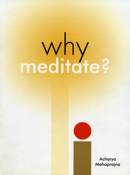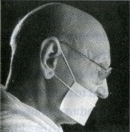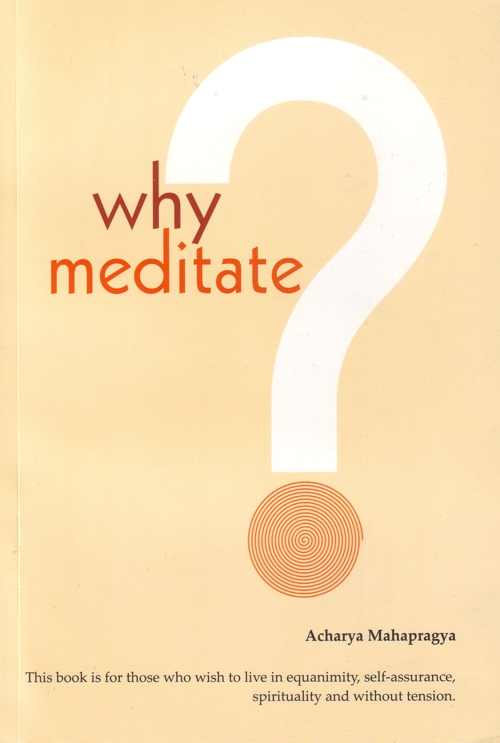

In ancient times the guidelines for the monk were padhamam porisi sajjhayam biyam jhanam jhayayi. If we divide a day into four sessions of about six hours each, we can allot as follows: The first session of the day starts with sunrise. During the first session, it is good to study and in the second session, it is advisable to meditate. The time for meditation and self-study are different. The first session - up to three and a half hours - is suitable for studying, committing text to memory and reading aloud. It is not the time for meditation. Do meditation when the sun goes up by about 4 hours. Meditation means to cogitate deeply whatever has been studied. This is the best time to think deeply about its meaning. If you teach an important chapter early in the morning, the student may not succeed in grasping and learning it at that time. If you teach the same matter after 10 o' clock, then he can grasp it quickly. This is an important fact. The first session is for learning and the second for thinking over its meaning. In this manner, all our time is to be managed. When should we take meals? The third session is for meals. The fourth and last session is again for studying and learning.
The acquisition of quanta of knowledge by the ancient people was achieved only through time management. In ancient times, paper was not easily available. Neither was there an existing tradition of writing things down. Nowadays since paper is so readily available, we even waste it. In ancient times, the entire teaching was committed to memory. If we were to visualize the volume of knowledge that the ancients committed to memory, these would fill volumes that are the size of our present-day universities, towns and cities. The ancient people memorized such a vast ocean of knowledge. It was an art of learning and memorizing. Time management was an important part of developing memory power. They knew the right time for each and every task. The movements of stars and constellations guided them, by noting which they performed the right task for that particular time. There were monks who specialised in time management. These monks' main work was to inspect the usage of time. Other monks used to follow their advice, and fix their daily routine according to the schedules defined by these monks. These monks played an important role. If there is no time specialist, then how can we manage our time?
The efficiency of a person does not remain the same for all the 24 hours. There is a particular time when our brain functions efficiently and, so also with the other parts of the body. The brain maybe efficient at one time, the hands at another, and the feet at still another time - so we need to know when to use each of these parts so that they are used optimally. One who knows this science will achieve success.
Our emotions also fluctuate with time. At a certain time, our emotions and thoughts are positive and sometimes they turn negative. Often a person is unable to believe that he is the same person as a while ago. “Why, I was feeling so good this morning, now why have I begun to feel bad?” Even emotions are not stable. If we think deeply, we will conclude that those who wake up early in the morning seldom have negative thoughts, while those who wake up late have more negative. A person went to his guru and said, “I have a problem. I have a lot of bad dreams.” The master replied, “There is no need for any medication. Don't sleep after 3.00 a.m. Dreams will not bother you. The time of dreams is basically from 3.00 a.m to 5.00 a.m. So don't sleep at that time.”
Emotions are present in our entire day's routine. Emotions also have got their own time. In the terminology of Hatha yoga and Goraksha samhita, bad dreams, unreal imagination and negative thoughts bother those who do not experience the secretion of nectar in the morning. In scientific language, this refers to a person who does not experience the secretion of serotonin. If this is secreted in balanced quantity, then we may be relieved from negative emotions to a fair extent.
We need to analyse, observe and manage our life's routine. A person can inspect his own motive for success. To achieve success, we need to think of all five factors of dravya, kshetra, kaal, bhaav and bhav. There are places, which make us feel happy merely by our going there. Similarly, there are others, which make us depressed for no apparent, any reason. The electromagnetic energy of that place also acts on us. The atoms of that particular place also affect a person. People visiting Preksha Vishva Bharti often say, “I came intending to stay only for five days. Now two months have passed and I don't feel like leaving.” This is an illustration of the effect of that place. In the same way, time and emotions have their own effect. Emotions are also related to time. In Dashvaikaalik sutra, there is a prescribed time for meditation, self-introspection and self-awakening. The aphorism of Preksha Meditation is, “See your Self through yourself.” One who sees himself through himself obtains the remedy for his own problems. The best time for self-introspection and to delve into the inner world is from 12.00 midnight to 2.00 a.m. and from 4.00 a.m. till sun rise. These are the golden periods for realization of inner divinity.
We should mark time. A song composed by Acharya Tulsi is titled “Mark time”. Evaluation of time is the best principle for success. An important practice for a peaceful and healthy life is time management, so do not undervalue time.
On one occasion, Gautam Swami, the chief disciple of Bhagwan Mahaveer, was also depressed. At that time, Bhagwan Mahaveer exhorted him to rid himself of his depression. It was a long discussion. The essence of it was, “Gautam! Don't waste even a single moment. Be aware. That will help your depression to vanish.” We should remember this principle that time should be valued. We should not waste even a single moment in negligence or laziness, but we should utilize every moment. If every individual would absorb the teaching that not even a single moment should be lost in negligence, then how much alertness will arise! If we are ever alert, then time will take us towards progress. There is a statue in Paris, which looks very strange. The front side is very attractively portrayed, but the rear is empty. It is said that this is the statue of Time. If you want to hold on to it, hold it from the front, as there is nothing to hold on to at the back! That is why we must understand the importance of every single second, so that success will touch our feet.
 Acharya Mahaprajna
Acharya Mahaprajna
 Copyright by Acharya Mahaprajna ©2005
Copyright by Acharya Mahaprajna ©2005